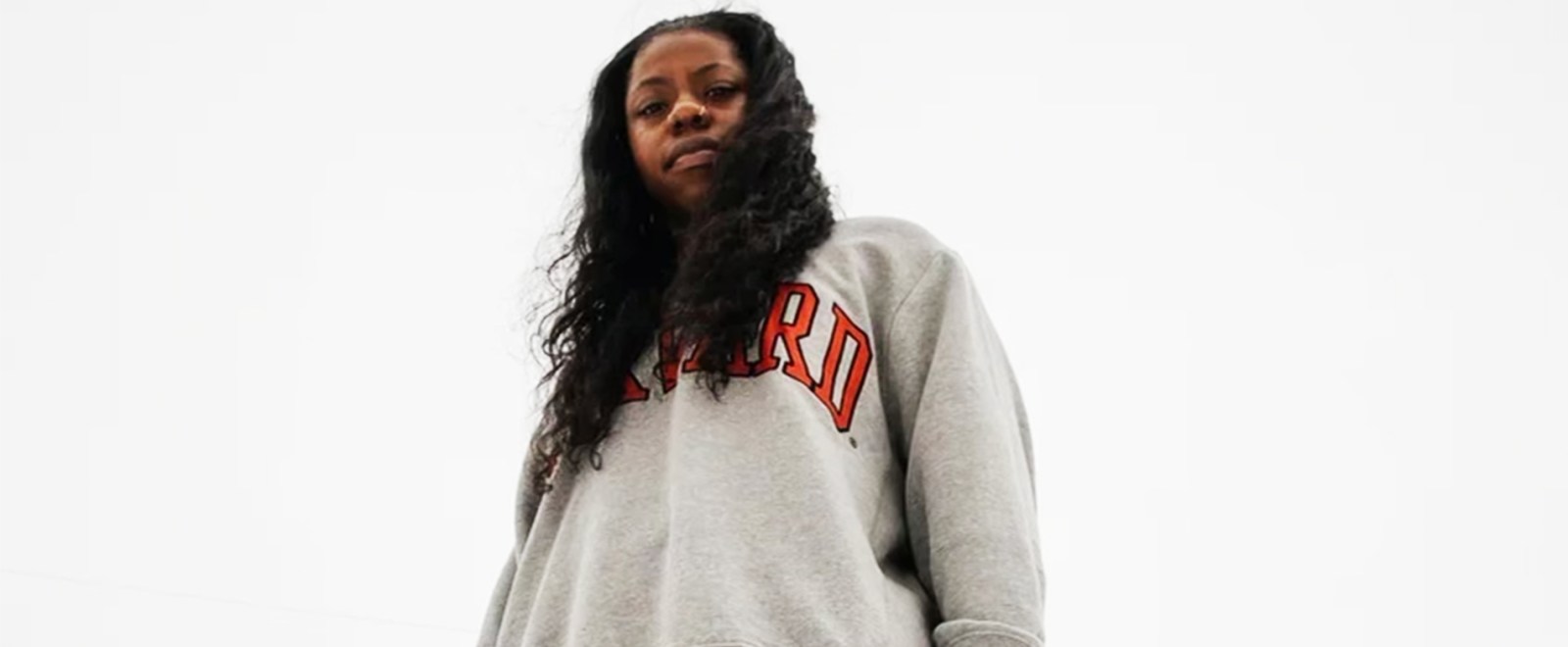
The past three years have been a sprint for Arike Ogunbowale, even by her standards. A maniacally hard worker who can’t help but put too much on her own plate, she’s a glutton for being busy, even if she makes sure to cherish the ride. Less than three years ago she hit two of the most famous shots in the history of college basketball to claim a national championship at Notre Dame, and now she’s well on her way to, well, whatever she wants.
As an activist, creator, and hoops star, Arike has enough talent, hunger, and credibility to make those in her tight inner circle hesitant to even speak into existence a ceiling on what she can accomplish. Just this year, she is set to represent the U.S. at the Olympics, grow a distinctive fashion line, and potentially get the Dallas Wings to the postseason for the first time since they made her the sixth overall pick in 2019. But for now, she’s biding her time overseas while playing for Dynamo Kursk, the Russian team she’s led to the EuroLeague quarterfinals.
That’s where she is when she sits down with Dime for a Zoom call to talk about her career so far and what’s next. Considering the attention she’s gotten and all the ways in which her life has changed since she made two iconic buzzer-beaters in the 2018 Final Four, as well as how high she’s set her sights in the years since, one question naturally comes up: is it overwhelming?
Hardly a blink passes before her response, which doesn’t even take words to express. Just laughter, then finally a “no.” She loves it. Not the fame or glamour of being a high-profile athlete (indeed that path is admittedly harder to come by for women), but the attention. The opportunity to show more people how special she is, and the higher level still she knows she will reach. Hitting big shots was the inevitable byproduct of a passion for the game that burns as brightly as her smile, and the casual killer instinct that’s necessary to be comfortable in a moment like that. When you dominate, of course people will pay attention.
“That doesn’t make me uncomfortable at all,” she says.
She embraces it. Why do any of this if not for people to get excited? As we watch what happens when one of the most impressive players ever to come out of college basketball finally joins the WNBA, Arike is in many ways redefining the career a women’s basketball player can have.
—
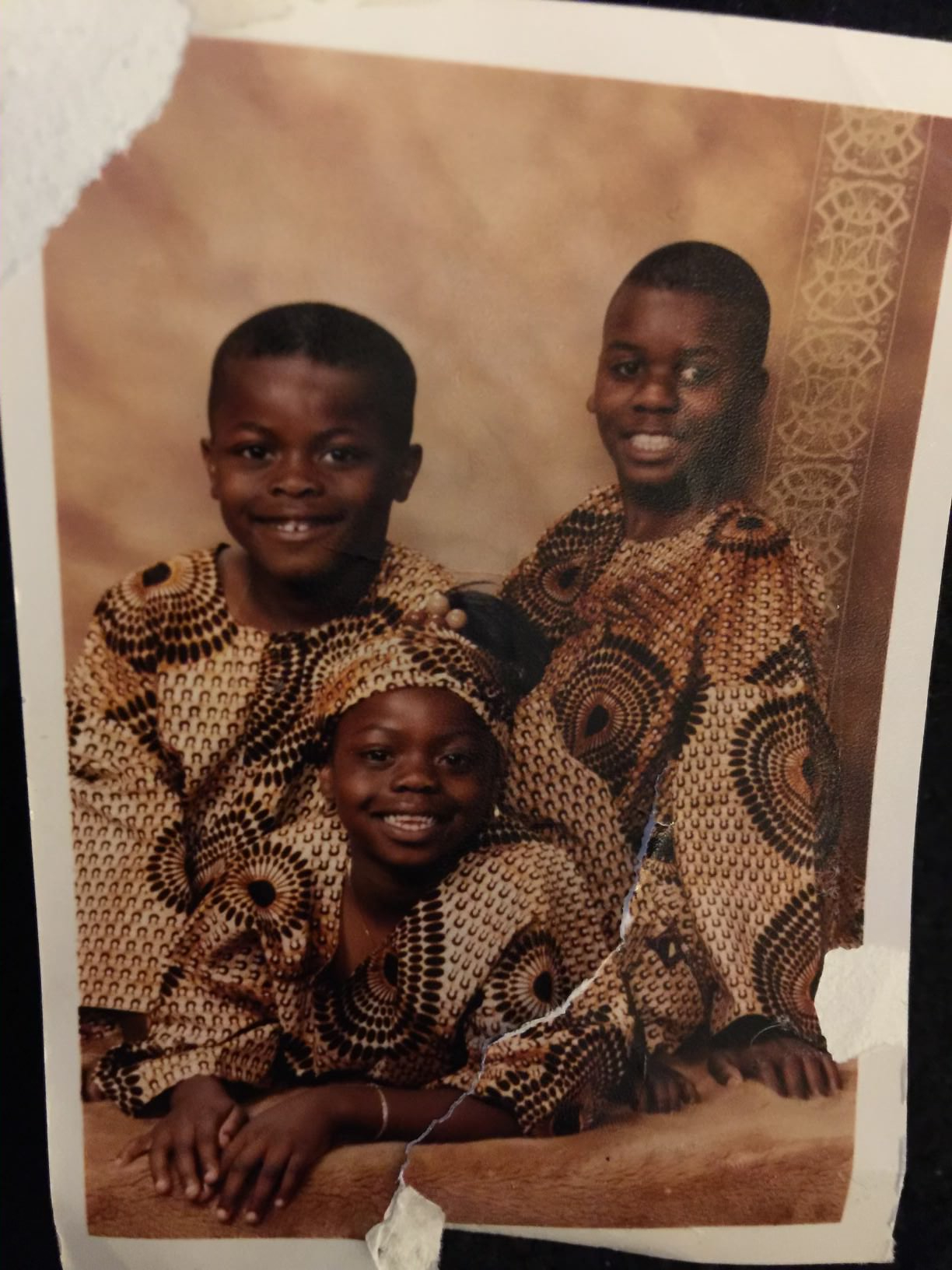
Growing up, the Ogunbowale kids competed any way they could.
In their Milwaukee backyard, older brothers Dare and Mario cobbled together scrimmages in everything from soccer to tackle football to basketball, often inviting their cousin, Diamond, over to get in on the fun. The boys would roll around on the grass and take the “football” out of tackle football, but always made sure not to hurt the youngest, their sister Arike, lest they get an earful or worse from their father. Despite being the youngest Arike never backed down, taking part in all of the “ridiculous” challenges Dare concocted and, for the most part, dominating. They all got their athletic edge from their parents, with dad a rugby player in Europe and mom a highly-regarded softball player at DePaul.
Still, it was clear early that there was something special about Arike.
“I knew we’d have different paths,” Dare says. “It’s been like that since the beginning.”
As Arike grew into her outsized competitive spirit, she developed a work ethic to match and a tenacity on the basketball court that made her a state champion, a three-time Gatorade Player of the Year, and a top recruit. Being in a high school gym where Arike was playing was evidence enough of the type of star she was going to be, and schools from across the nation competed for her talent.
“When you see highlights of her in college or what she’s doing now in the pros, that’s how she was in high school,” says Notre Dame head women’s basketball coach Niele Ivey, who back then was an assistant coach and the program’s recruiting coordinator. “Everyone packed in and came to see her play; she was just exciting and fun to watch.”
Arike was just developing her poised and forceful style, which would become her trademark as a player and entertainer. That made Notre Dame a peculiar match, with the program renowned for shaping players through a strict system and collaborative program. Teammates doubted she would choose South Bend, and Arike admits she strongly considered programs like Ohio State and UCLA.
Paradoxically, the ways in which Notre Dame would force Arike — with all her flair, confidence, and dreams — to adjust were also what made the Fighting Irish a great match.
“It was just a perfect fit for me,” Arike says. “Three and a half hours away from home, academics was important, I’ve been in religious schools my whole life, and I (studied) business, so they have a top-five business school and top five in athletics every year. Then Coach (Muffet) McGraw and Niele really cared about me as a person, made it like a home away from home.”
Having coached several big personalities and towering talents in the years leading up to Arike’s recruitment, a basketball traditionalist like McGraw felt ready to coach Arike in a way she may not have when she took over the program in the late 1980s. The path paved by Skylar Diggins, Kayla McBride, and Jewell Loyd allowed Arike to thrive, and gave McGraw the confidence to hand her the reins.
“I think her confidence was contagious,” McGraw says. “I think it infected the entire team. I think her mindset of ‘we’re going to win this game’ was something that wore off onto all the other players. And she backed it up.”
But Arike’s growth into a leader and the player who would add another trophy to Notre Dame’s collection was slower than expected. She joined a veteran team, and despite earning playing time and All-Freshman accolades, she didn’t traipse up the pecking order like she expected. McGraw made her earn it. By conference play, Arike was more comfortable, but it was hard to stomach the idea of accepting a small role for the betterment of the group.
Growing up, Arike had never had to think much about how to lead or what it means to be in peak physical shape. Greatness, being the best to ever play, that was all firmly in her line of sight even as a high schooler. Playing a role? That was a shock to the system.
“It was hard for me,” Arike says. “I didn’t get the playing time that I envisioned and it was easy to point the finger like why is (McGraw) not playing me? I could be at any school playing 40 minutes, averaging 20-something points, but I’m here subbing. After that, I just had to look at myself and (realize) maybe I wasn’t as ready for college basketball as I thought.”
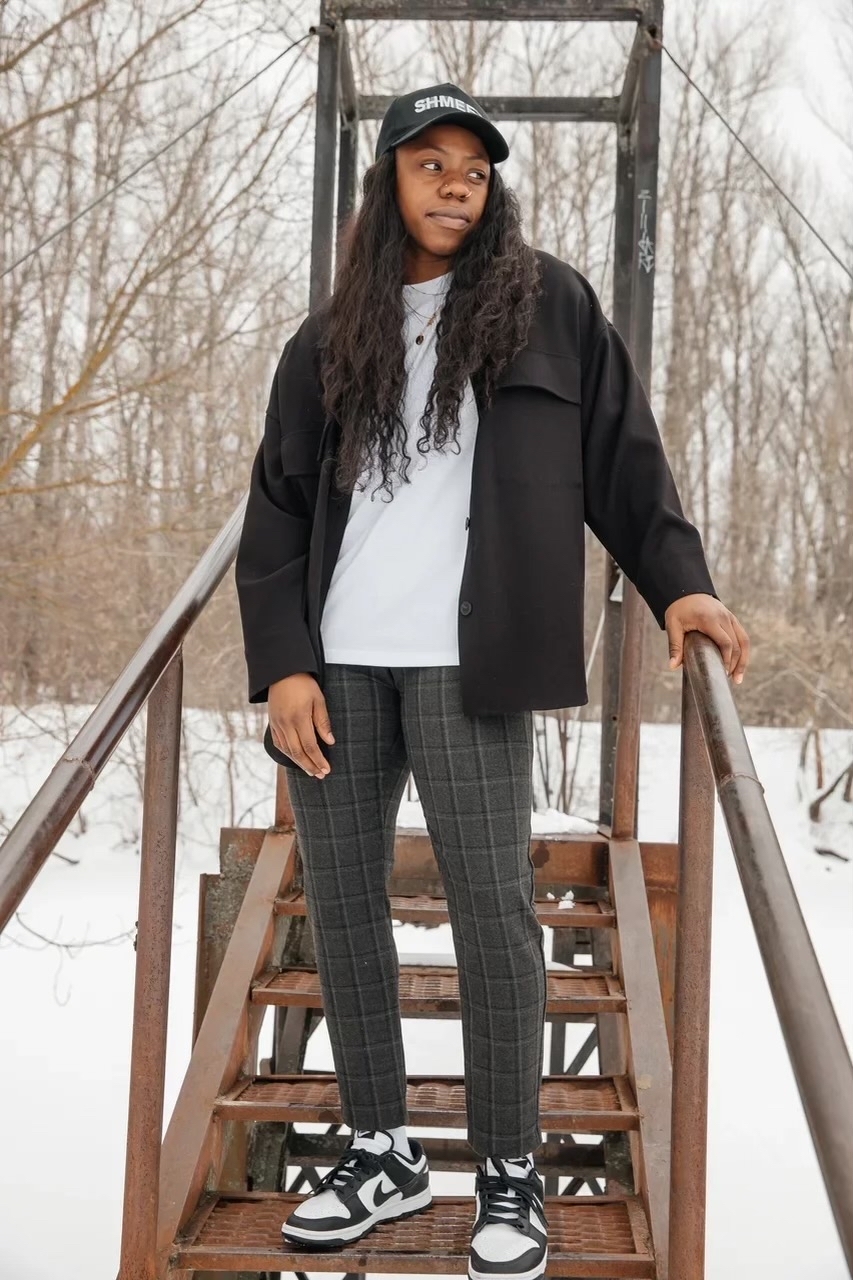
During the summer after her freshman season, Arike dedicated herself to slimming down and becoming a more vocal leader. That’s also when she began training and working out with Durrell Johnson, who was introduced through Diamond Stone (Arike’s cousin and a former NBA draft pick) and would become part of her small inner circle of confidantes. They worked hard all summer, and despite the grind of school come fall, Johnson was surprised by how quickly Arike would finish assignments he gave her, whether physical or skill-based. The work continued through her sophomore season and into the next summer, when even Ivey noticed Arike came back 20 pounds lighter heading into year three at Notre Dame.
The team needed it. Four players, including All-American forward Brianna Turner, missed all or part of the year due to all of them suffering ACL tears. But the group rounded into form around Arike, went 35-3, and marched through the first two weekends of the NCAA Tournament to set up a Final Four showdown with four-time defending champion UConn.
Friends, family, and alumni all came to watch as Arike and her teammates tried to lock down the program’s first championship in nearly two decades. Notre Dame came into the weekend with the worst odds to claim the title and had lost to UConn earlier in the season, but managed to force overtime this time around.
With less than a minute to go in the extra period, Arike missed a free throw, which quickly turned into a game-tying three on the other end. McGraw called a timeout, then drew up a play for post scorer Jessica Shepard. The Huskies denied it, the ball found Arike’s hands, she drifted to the right corner, a step inside the three-point line, and patiently swished in the shot.
“I’ve seen her do that 100 times where she crosses somebody and then pulls up, and it just so happens to be at the buzzer,” Dare remembers.
“She’s a shot-maker,” adds Ivey. “She lives for those moments. When she steps on the court, she thinks she’s the best player on the court. That’s an intangible that not a lot of players have, and she has that.”
That shot made her famous, but the next one made her a college hoops legend. With the score tied at the end of regulation and three seconds left in the title game against Mississippi State, the Irish skipped a full-on set play and gave the ball to their star. Arike got to the same spot, only with far less time to get her balance, which ended up meaning she took a three without needing to. The hurried, one-legged shot, one of the most iconic in the sport’s history, was pure.
Somewhere in the lower bowl, Dare leapt up in exhilaration. His phone fell to the floor, screen shattering, as he celebrated with his father and his best friend and Wisconsin teammate Austin Traylor. With the long build toward an NCAA title complete for the “princess” of the family, April 1, 2017 became for Dare one of the “happier days of my life and our family’s lives.”
For Arike, it isn’t so much the statuesque image or even the gratification that sticks with her a few years later. Rather, it was seeing the dozens of alumni who joined the title team in the locker room postgame.
“It just felt like this is exactly what I wanted from a school, the type of environment and relationships you build in college, so it was a good feeling to be around everybody,” she says.
—
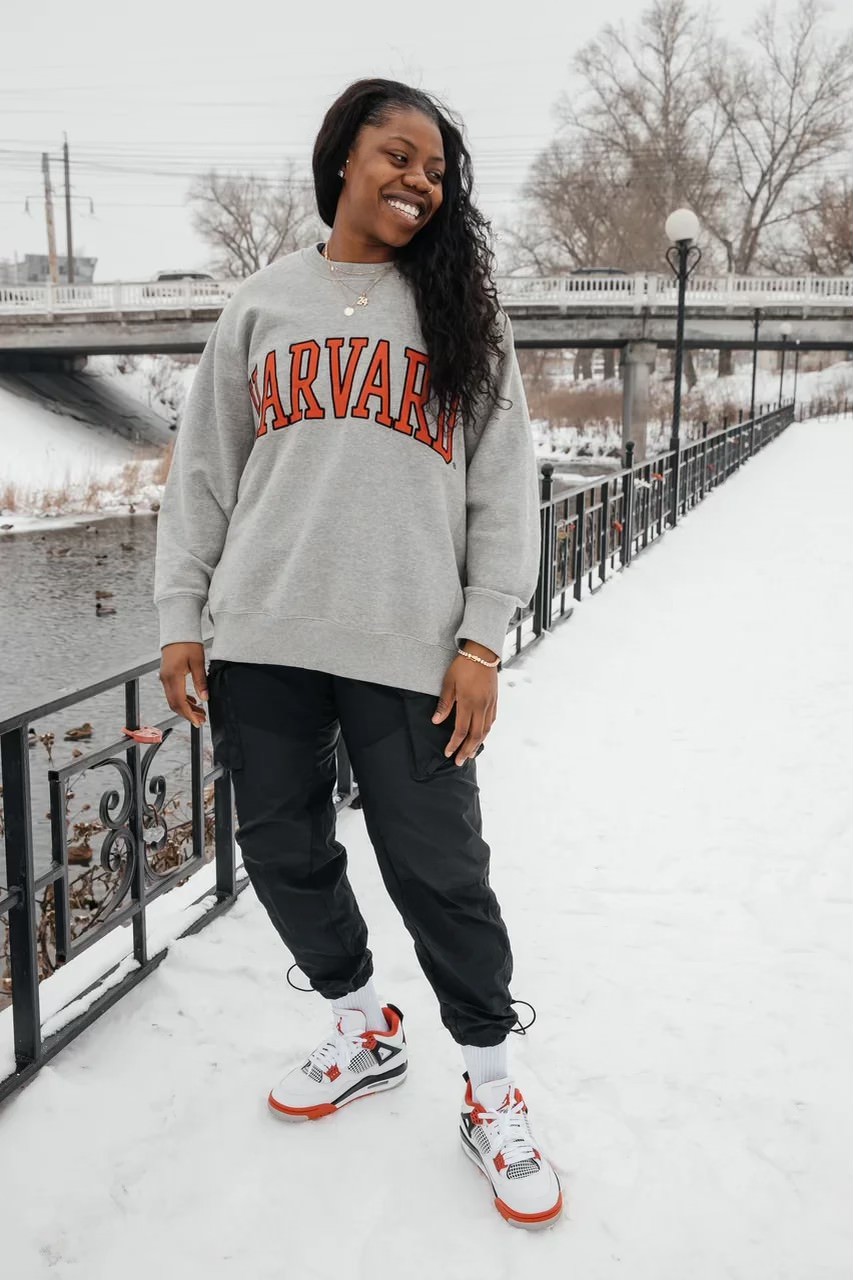
That process at Notre Dame is similar to the challenge that she faces early in her WNBA career with the Dallas Wings, who haven’t had a bevy of postseason success. Arike has still yet to taste the WNBA playoffs, coming one game short in the abbreviated 2020 Bubble season despite leading the league in scoring and being named to the All-WNBA first team.
“I don’t honestly think it’s even a (specific) goal that she has,” Dare says. “Yeah, she wins first-team All-WNBA and that’s great, but that didn’t mean that she was the best, you know?”
Nobody around Arike is surprised at her rise, or that she’s still not satisfied.
As Arike’s position coach in South Bend, Ivey constantly had to bring her A-game as well, knowing Arike would quickly accomplish whatever was put in front of her. “We tried to bring out the best in her while also allowing her to be a star,” says Ivey. Arike would often invite Ivey’s son, Jaden, now a freshman at Purdue, to work out with her, knowing the boy was a dedicated hooper as well. Ivey was surprised when those invitations would come as late as 11 p.m. or midnight, even on practice days. Johnson has observed it as a trainer when Arike demands to work with the men in the facility and never complains about the grind.
And at Notre Dame, she became a leader, which should serve her well on a young Dallas squad.
“She knew when it was her time to speak and when it was not, and how she could get people to listen to her, and what she could say and how she could say it,” McGraw remembers. “Some people can be kind of abrupt, (but) she was a little more gentle.”
Arike has learned how to accept criticism and be coached. She can absorb a scolding without flinching, then go out and dominate like it never happened. Sometimes, as McGraw jokes, that includes taking the court and making the same flashy play that got her yelled at in the first place, but more often than not, it has worked.
In the near-term, Arike is shooting for a WNBA championship. She speaks of it almost as a formality, the inevitable result of hard work. Beyond that, she’s not sure what shape her career will take. On one hand, she has helped shepherd in a new era of women’s basketball, one with new opportunities for athletes and a larger spotlight on the game. But she’s also the type to never be satisfied.
“Even though this situation is tough (in Dallas) with two losing seasons, this is where I want to be and I want to be in that legacy of helping win a championship for a team,” Arike says. “I for sure won’t be 100 percent satisfied at that point, but in my near future, that’s the biggest thing right now.”
If history tells us anything, Arike can will the Wings toward a title, but the challenge for any female athlete is to expand their influence and stardom beyond the limitations of women’s sports. Increased investment and coverage give many in the game a sense that this generation can have it better. By being herself, Arike can benefit from those trends — and continue to propel them.
After graduation from Notre Dame, Arike became connected with her agency and financial advisor through Dare, but as she met with Erin Kane, who would go on to represent her, it was Arike who did most of the talking. Kane represents many of the top athletes in the WNBA and understands the obstacles to growing the profile of someone in Arike’s shoes, but was impressed with Arike’s depth of knowledge, even as a teenager. Arike knew what she wanted out of her career but also how hard it would be to achieve. Arike trusted her own hustle, but only wanted people in her corner who could match it.
Now that her career is established, Arike is taking time to figure out, with her family, agent and close friends like Ivey and Marina Mabrey, a teammate at Notre Dame and in Dallas, how to give back to all the communities she’s part of. That includes Milwaukee and Dallas, but also Nigeria, where her father was born. Careful not to get ahead of herself with promises, Arike admits that’s where her heart lies right now.
Impact can be circular, in that you need some to affect some. For instance, fashion and clothing were interesting and creatively fulfilling for Arike and Dare long before they had the resources to do anything with that passion. Getting to actually design products and launch a brand is a thrill for the siblings, even in this early stage. Dare isn’t sure what will come of it, but Arike is more optimistic.
Since she was a child, dressing up her friends and family has been a favorite way to express herself. During chilly seasons overseas, it’s an easy way to pass the time and have fun. In addition to getting tattoos every chance she gets, Arike hopes to continue showing her sense of style with her fans. She’s a Nike athlete, but sneaker brands have been slow to fully embrace women’s basketball, so Arike is taking it into her own hands.
Merch is finally here
Hit the link. https://t.co/0J7xq8GQhR pic.twitter.com/lUYJMTKivZ
— Arike Ogunbowale (@Arike_O) September 10, 2020
She also loves interacting with fans on social media, despite the ugliness that gets sent female athletes’ way from time to time. Amidst travel to and from Russia and a lot of time alone, it’s a lot of Netflix bingeing and fawning over her dogs — typical 20-something stuff. After all, there’s room in the grind for some fun stuff, too. But there’s also a lot of time to improve as a player and think about what comes next.
—
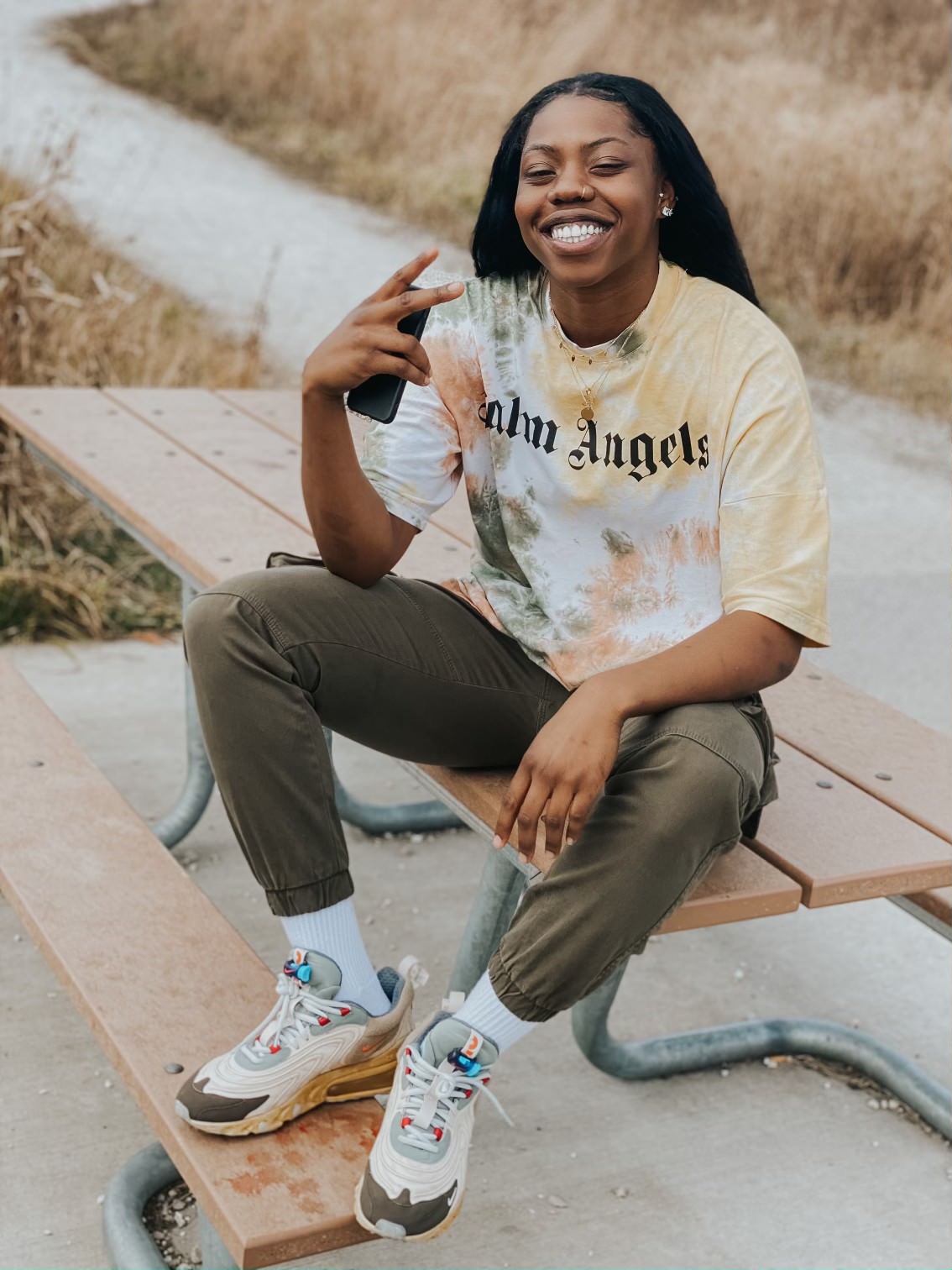
Despite finishing as the runner-up for Rookie of the Year in 2019 (behind Napheesa Collier, over whose outstretched arms she hit the Final Four dagger), Arike did lead the WNBA in scoring in 2020 and make the All-WNBA First Team as Dallas finally cracked the top half of the league in offense. This offseason, after a couple months off to decompress and let her body recover, Arike started putting together counter-moves and off-ball techniques to score despite the defensive hounding she deals with every night. She can get a shot off no matter how many hands are in her face, but as she rediscovers chemistry with Mabrey and becomes a leader for the young Wings, her game has to grow.
The same can be said for her impact as a global citizen. Arike is proud of the impact WNBA players made from the Bubble and is still considering how they can keep it up. She incorporates Black icons into her fashion presence and has earned the trust of Dare as a guiding light in the activism space, but wants to be careful how she wields influence. She is eager to get out in Dallas as the COVID shutdown comes to an end, and wants to help young disadvantaged people in Milwaukee. Her focus is largely local, and personal to her experiences.
And through her involvement in the More Than A Vote campaign and her efforts to help turn Notre Dame’s Edmund P. Joyce Center into a voting center last fall, Arike is not shirking the optional and challenging parts of being a female pro athlete in this moment. She even recently took time to speak with a group of young female athletes from her father’s home country of Nigeria, discussing her schooling, career and heritage.
View this post on Instagram
“To see her expand that role, to see her impact the world more, to watch her understand her impact and her reach, that’s the part that I am so proud of,” says Ivey, who helped develop a culture of outspokenness and activism at Notre Dame. “The fact that she realizes her power, she’s walking in her power every day, and she’s doing so much more than just sticking to sports, I love that about her.”
Of course, it’s heavy to place upon a player the weight of growing an entire sport, league and movement. Some run away from it. And while Arike doesn’t need to sweat the path forward for the WNBA financially or how to knock down the social impediments to the growth of the game, she’s confident things will keep improving.
“Everybody has that responsibility to try to grow the game because it’s come a long way but it still has a long way to go, but that just comes with being true to yourself and doing what you do,” Arike says. “Going out there and playing, showing your personality and showing the game is fun to watch, that it’s exciting.”
Mentors like Sylvia Fowles, the veteran center and three-time champion who Arike met during a USA Basketball event in 2019, share an easygoing persona that is instructive of how Arike could handle herself over time. Having a teammate like Mabrey who knows Arike and her passions should help her flourish in Dallas. The groundwork is there.
Because organized basketball is still relatively young on both the men’s and women’s side, eras can be measured by the players who dominated within them. Those around her take it seriously when she aspires to be the greatest to ever walk on the court.
“She’s definitely helped change the face of the women’s game,” Ivey says. “You have Pat Summitt, Candace Parker, all these powerful women, even Cheryl Miller back in the day, I think Arike’s one we will talk about someday and say she paved the way, she moved the game forward.”
It almost seems immaterial now to peg possible achievements to someone whose potential is as boundless and whose personality is as laid-back as Arike’s. She says she has no idols, no specific players she measures herself against. Her greatness is internal, something known when it’s seen.
When she considers what someone who has somehow missed those Final Four shots or her infectious on-court swagger ought to know about her, Arike chuckles. Why would she worry about that, when all it takes to get educated on all that makes her great is to turn on a TV, or buy a ticket to a game?
“They should just check me out and see if they like me,” she says.
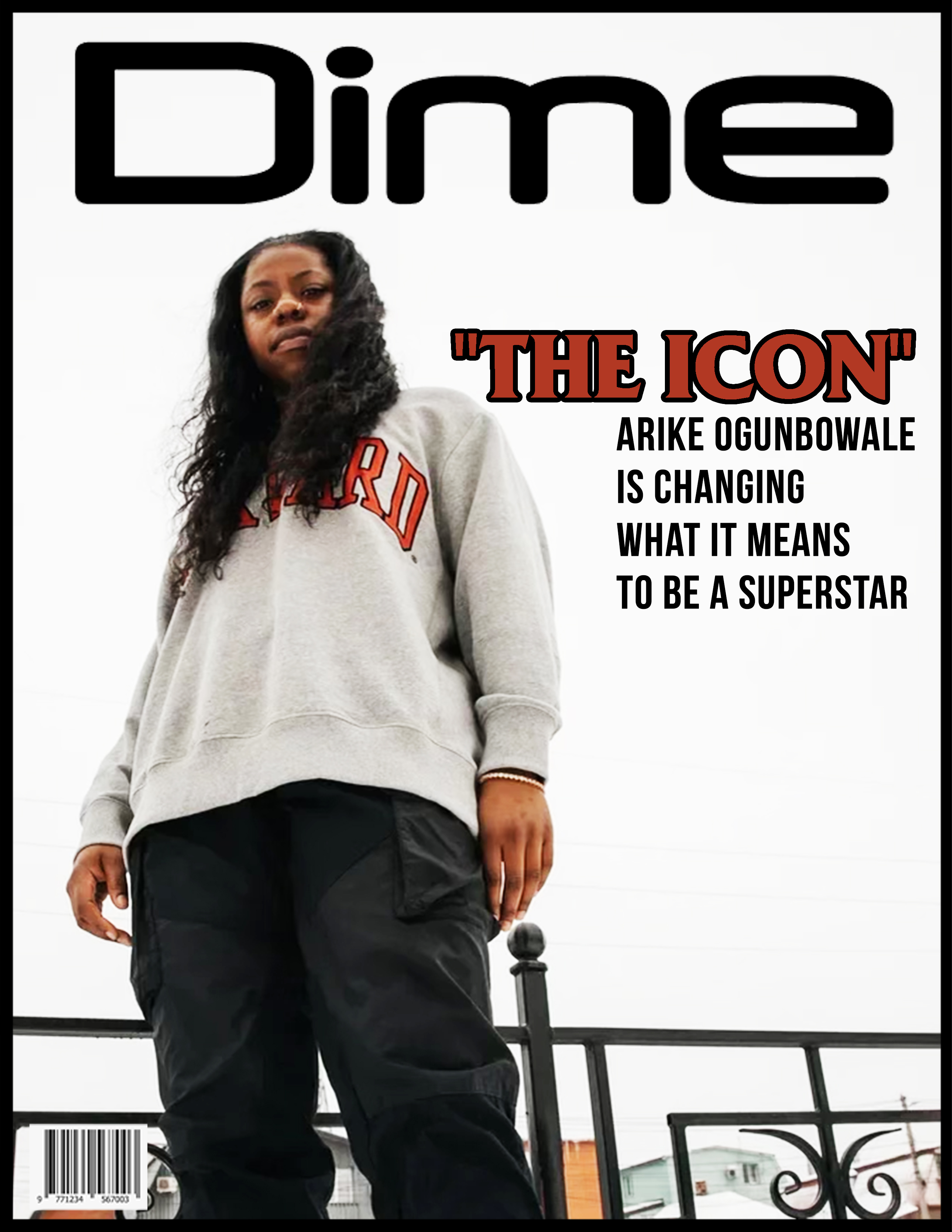




 (@arike_ogunbowale)
(@arike_ogunbowale)